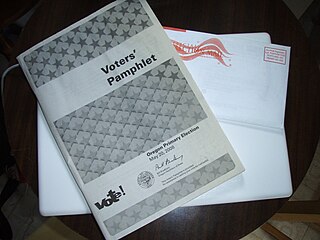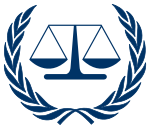
The Israeli system of government is based on parliamentary democracy. The Prime Minister of Israel is the head of government and leader of a multi-party system. Executive power is exercised by the government. Legislative power is vested in the Knesset. The Judiciary is independent of the executive and the legislature. The political system of the State of Israel and its main principles are set out in 11 Basic Laws. Israel does not have a written constitution.

Elections in Jersey take place for the States Assembly and at parish-level. Various parties have been formed over the years in Jersey, but few candidates stand for election affiliated to any political party. All elections in Jersey use the first-past-the-post voting system. In 2008, the voting age was reduced to 16 years.
The Tennessee Plan is a system used to appoint and elect appellate court judges in Tennessee. The system requires candidates be selected by a nominating commission and therefore plays a significant role in the selection of the state's judiciary. It is largely patterned after the Missouri Plan, and an earlier version in Tennessee was called the Modified Missouri Plan.

The eighteen judges of the International Criminal Court (ICC) are elected for nine-year terms by the member-countries of the court. Candidates must be nationals of those countries and they must "possess the qualifications required in their respective States for appointment to the highest judicial offices".

The Montana Supreme Court is the highest court of the Montana state court system in the U.S. state of Montana. It is established and its powers defined by Article VII of the 1972 Montana Constitution. It is primarily an appellate court which reviews civil and criminal decisions of Montana's trial courts of general jurisdiction and certain specialized legislative courts, only having original jurisdiction in a limited number of actions. The court's Chief Justice and six Associate Justices are elected by non-partisan, popular elections. The Montana Supreme Court meets in the Joseph P. Mazurek Building in Helena, Montana, the state's capital, an international style building completed in 1982 and named in the honor of former Montana Attorney General, Joseph P. Mazurek.

On November 4, 2008, the U.S. state of Oregon held statewide general elections for three statewide offices, both houses of the Oregon Legislative Assembly, and twelve state ballot measures. The primary elections were held on May 20, 2008. Both elections also included national races for President of the US, US Senator, and US House Representatives. Numerous local jurisdictions — cities, counties, and regional government entities — held elections for various local offices and ballot measures on these days as well.
The German federal election system regulates the election of the members of the national parliament, called Bundestag. According to the principles governing the elections laws, set down in Art. 38 of German Basic Law, elections are to be universal, direct, free, equal, and secret. Furthermore, the German Basic Law stipulates that Bundestag elections are to take place every four years and that one can vote, and be elected, upon reaching the age of 18. All other stipulations for the federal elections are regulated by the Federal Electoral Act. Elections always take place on a Sunday. Mail votes are possible upon application.
The 2011 International Court of Justice election began on 10 November 2011 at United Nations Headquarters in New York City. In the set of triennial elections, the General Assembly and the Security Council concurrently elect five judges to the Court for nine-year terms, in this case beginning on 6 February 2012. From the eight candidates, the five winners were Giorgio Gaja (Italy), Hisashi Owada (Japan), Peter Tomka (Slovakia), Xue Hanqin (China) and Julia Sebutinde (Uganda).
A special election for two judges of the International Criminal Court was held during the 8th session of the Assembly of States Parties to the Rome Statute of the International Criminal Court in The Hague on 18 November 2009.
An ordinary election for six judges of the International Criminal Court was held during the resumption of the 7th session of the Assembly of States Parties to the Rome Statute of the International Criminal Court in New York on 19 and 20 January 2009.
A special election for three judges of the International Criminal Court was held during the 6th session of the Assembly of States Parties to the Rome Statute of the International Criminal Court in New York on 30 November and 3 December 2007.
An ordinary election for six judges of the International Criminal Court was held during the resumption of the 4th session of the Assembly of States Parties to the Rome Statute of the International Criminal Court in New York on 26 January 2006.
An ordinary election for the first full bench of 18 judges of the International Criminal Court was held during the first resumption of the 1st session of the Assembly of States Parties to the Rome Statute of the International Criminal Court in New York between 3 and 7 February 2003.
Six judges of the International Criminal Court were elected during the 13th session of the Assembly of States Parties to the Rome Statute of the International Criminal Court scheduled for 8 to 17 December 2014 in New York. The judges were elected for terms of nine years and took office on 11 March 2015.
Matthew Frederick Leitman is a United States District Judge of the United States District Court for the Eastern District of Michigan.
A special election for one judge of the International Criminal Court was held during the 12th session of the Assembly of States Parties to the Rome Statute of the International Criminal Court which took place in The Hague from 20 to 28 November 2013.
A special election for one judge of the International Criminal Court was held during the resumption of the 13th session of the Assembly of States Parties to the Rome Statute of the International Criminal Court which took place in The Hague from 24 to 25 June 2015.
James Chiun-Yue Ho is an American attorney and jurist serving as a United States Circuit Judge of the United States Court of Appeals for the Fifth Circuit.

The 2020 Ohio general elections will be held on November 3, 2020 throughout the US state of Ohio. The office of the Ohio Secretary of State oversees the election process, including voting and vote counting.






